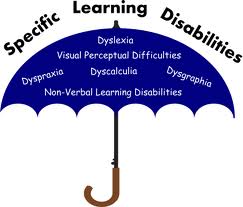Websites & Blogs (Learning Disabilities) « Disabilities – Learning

Websites and Blogs About Learning Disabilities
- 2e: Twice-Exceptional Newsletter
The newsletter is “a bi-monthly electronic publication for those who raise, educate, and counsel high-ability children with learning issues such as AD/HD, dyslexia, Asperger’s, and so forth.”
- Child Mind Institute
An independent, national nonprofit dedicated to transforming the lives of children struggling with mental health and learning disorders.
- Clear Helper
A self-advocacy educational and networking website for people with intellectual disabilities.
- Derek Paravicini
Derek is an extraordinarily talented pianist, despite being blind and having severe learning difficulties. He plays entirely by ear, and has a repertoire of many thousands of pieces that he has memorised – jazz, pop and light classical – and he is a great improviser.
- Diagnostic Criteria for Attention Deficit Disorder
From David Rabiner, Ph.D., Senior Research Scientist at Duke University.
- Eide Neurolearning Blog
This blog shares weekly articles “related to brain-based learning and learning styles, problem-solving and creativity, kids, families, and parenting, gifted and visual learners, dyslexia, attention deficit disorders, autism, and more.”
- Friends of Quinn
An online community that offers resources and support for young adults with learning differences, as well as for the people who love them. Founded by Quinn Bradlee, filmmaker and author of A Different Life, a book about growing up with LDs, our mission is to connect the LD world. A social website for adults ages 18 to 35 with learning differences, it’s a place where anyone can find support, resources, and have a conversation about life and LDs.
- I Speak of Dreams
Liz Ditz writes this blog about effective parent, learning disabilities and more. She shares news, reviews, and resources about learning disabilities, with a focus on autism.
- Imagine This!
Innovative ideas for language and literacy for struggling readers.
- Learning Disabilities (MedicineNet.com)
Learning disabilities can cause an individual to have trouble learning and using skills such as reading, listening, writing, reading, speaking, reasoning, and performing mathematics. There is no cure for learning disabilities. Parents and teachers working together to properly diagnose learning disabilities can properly plan a course of education. For some, medication may be appropriate as complimentary treatment.
- Learning Disabilities, Dyslexia, and Vision (Pediatrics in Review – 7/27/09)
A new resource available that endorses only scientifically-proven interventions for dyslexia and learning disabilities. Notes and Quotes from an Advocacy perspective.
- Learning Disabilities in Children (HelpGuide.org)
If you think your child might have a learning disability, you may feel overwhelmed by the information, the numerous tests, and the lack of clarity about how to get the best help for your child. What you need is a roadmap for sifting through the information and finding the valuable support that is available.
- Learning Disabilities Information Page (National Institute of Neurological Disorders and Stroke)
The National Institute of Neurological Disorders and Stroke (NINDS) and other institutes of the National Institutes of Health (NIH) support research learning disabilities through grants to major medical institutions across the country. Current research avenues focus on developing techniques to diagnose and treat learning disabilities and increase understanding of their biological basis.
- Online Summer Reading Sites for Students With Special Needs (MangoMom blog – 5/28/10)
A list of websites with online reading games and activities and booklists that you can pass along to parents for summer reading for students, including students with special needs.
- The Language Fix
Speech therapy is the focus of this blog, which can be used to help children with special needs or children in standard courses.

